Initiative for Policy Dialogue
What's New
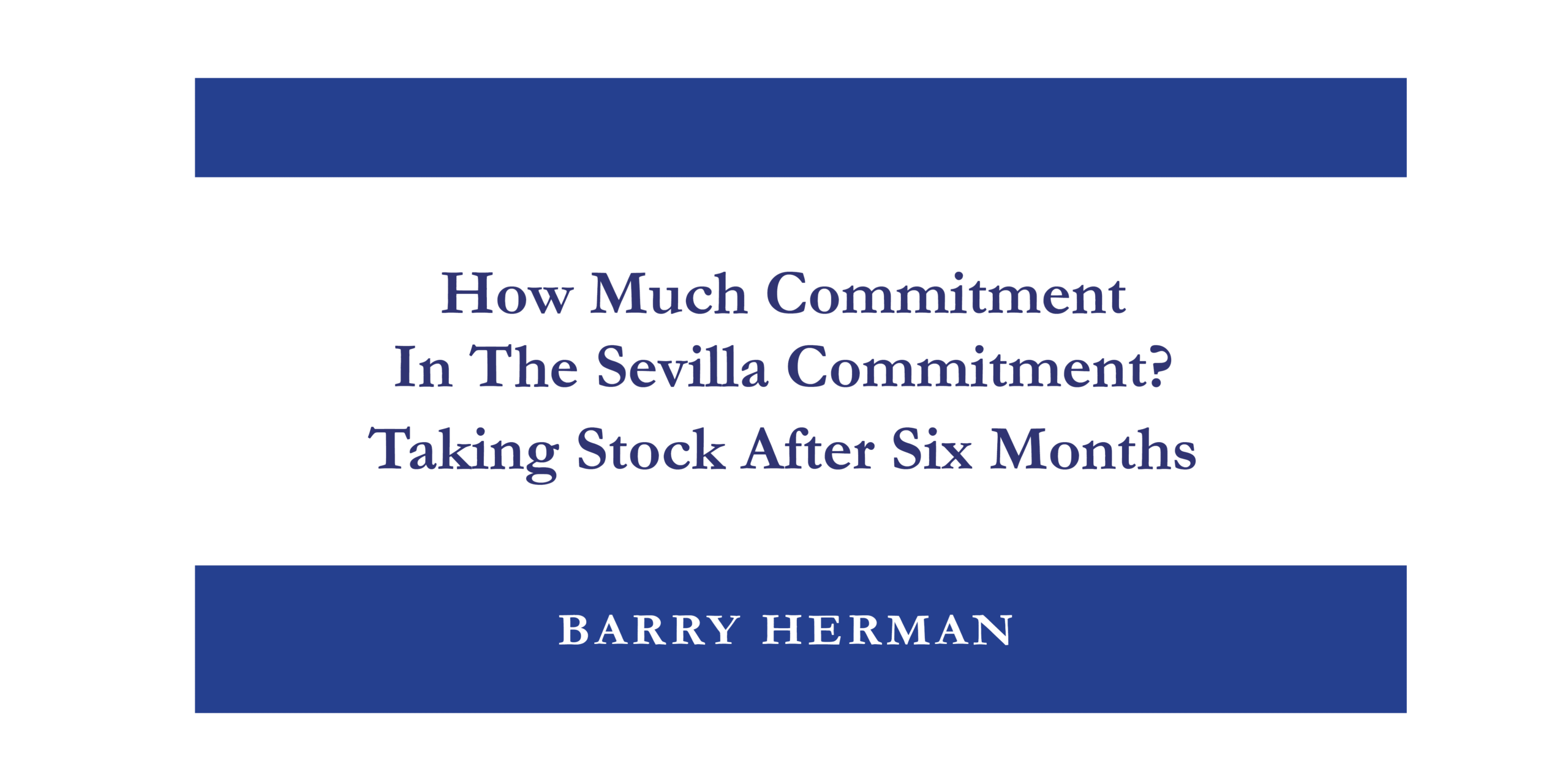
 Barry Herman
Barry Herman
How Much Commitment In The Sevilla Commitment? Taking Stock After Six Months
Development policy analysts usually focus on how specific reforms would improve economic or social wellbeing in developing countries. Sometimes analysts broaden their perspective to think about what a comprehensive package of such reforms should look like, paying attention to policy interactions and spillovers. International politics rarely seeks to deliver comprehensive and coherent policy packages. The United Nations has been one global political forum that has periodically sought precisely that, most recently at the Fourth International Conference on Financing for Development in Seville, Spain in June/July 2025. The negotiated outcome of the Seville conference does reflect a coherent vision and promises negotiations toward making it more comprehensive. Admittedly, the consensus is limited to agreeing only to keep talking about unrealized elements of the package and not every government will even join such discussions. This paper draws together and assesses those opportunities, taking account of subsequent challenges to the nature and content of global economic cooperation viewed half a year after the Conference was held.

Landmark G20 Report Led by Nobel Laureate Joseph Stiglitz Sounds Alarm on ‘Inequality Emergency’ and Calls for International Panel on Inequality.
The Committee highlights how inequality, particularly in the extremes, has many negative economic, political and societal outcomes, each interacting with the other in ways that exacerbate the adverse effects. High wealth inequality in particular undermines both democracy and economic progress. Recent events since 2020, including COVID-19, the Ukraine war and new tariffs and trade disputes since the beginning of 2025 are creating a ‘perfect storm’ which is further increasing poverty and inequality. One in four people worldwide now regularly skip meals, whilst billionaire wealth has now hit the highest level in history. The Report highlights how different policies could help to reduce inequality at the national and international levels, and notes the role that the G20 can play in facilitating global coordination.
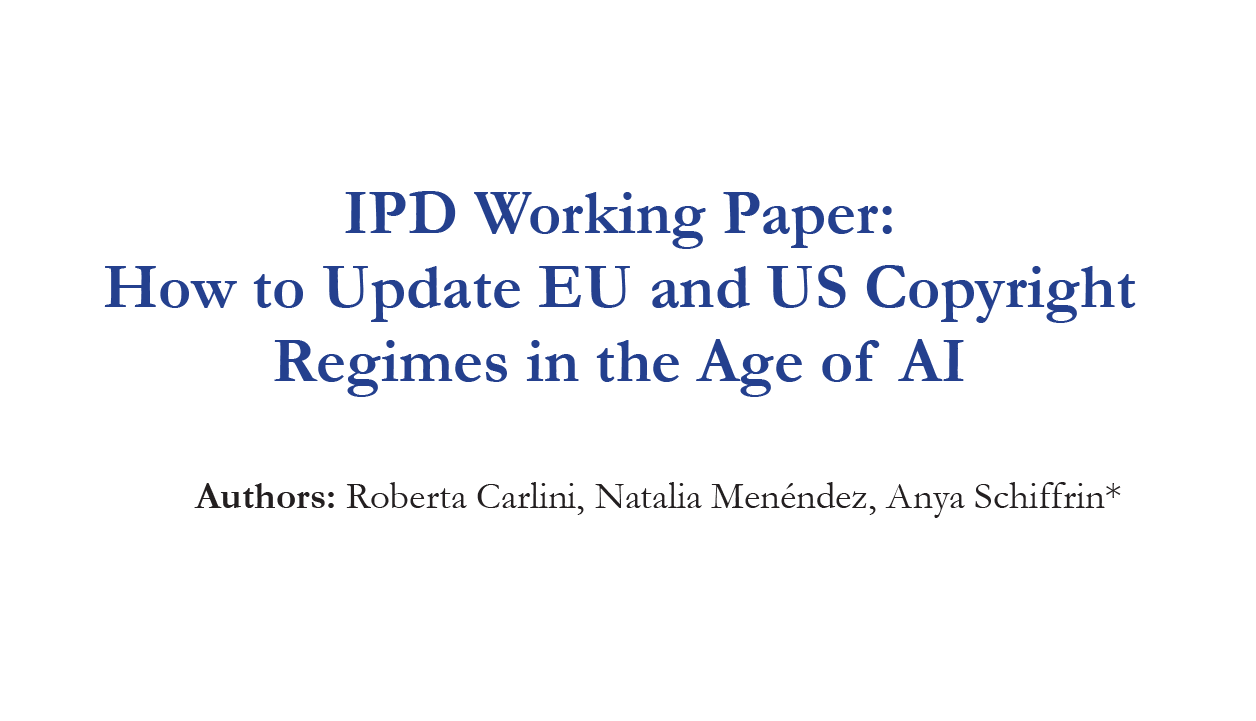
How to Update EU and US Copyright Regimes in the Age of AI
We expect the European Union (EU) and United States (US) to travel along very different paths particularly regarding the use of news and other copyrighted works in AI training and development. The two regions have different legal frameworks and traditions, with the US relying on an expansive definition of “fair use” that is not recognized in the rest of the world, while Europe offers data privacy protections that are not present in the US. Building on data provided by the European Union’s Media Pluralism Monitor, this paper discusses different ways of valuing news content, the state of current copyright negotiations between news publishers and prominent AI firms, and the consequences for media sustainability, media diversity and pluralism. We note too that there are multiple proposals for statutory levies on the AI firms that would be distributed to authors. Which, if any, will be adopted is not clear.
Explore Further >> about How to Update EU and US Copyright Regimes in the Age of AI

Webinar — The Trump Economic Agenda: A One-Year Assessment
One year into President Trump’s second term, U.S. economic policy is facing unprecedented uncertainty. From stagnant job growth and the fallout of expiring health care subsidies to a sweeping and chaotic tariff agenda, the consequences<a class="moretag" href="https://ipdcolumbia.org/"> Read more…</a>
Explore Further >> about Webinar — The Trump Economic Agenda: A One-Year Assessment

New Thinking in Industrial Policy: Perspectives from Developed and Developing Countries
Industrial policy is back on mainstream policy agendas in the U.S., Europe, and many developing countries, but the knowledge base to guide industrial policy remains underdeveloped. This conference on “New Thinking in Industrial Policy: Perspectives<a class="moretag" href="https://ipdcolumbia.org/"> Read more…</a>

25 Years of IPD: The End of Neoliberalism and The Transition Towards a Green and Digital Economy
Initiative for Policy Dialogue (IPD) celebrated its 25th anniversary with a two-day conference on September 12–13, 2025, hosted at Columbia University. The reflected on the past 25 years while critically examining the role of think<a class="moretag" href="https://ipdcolumbia.org/"> Read more…</a>
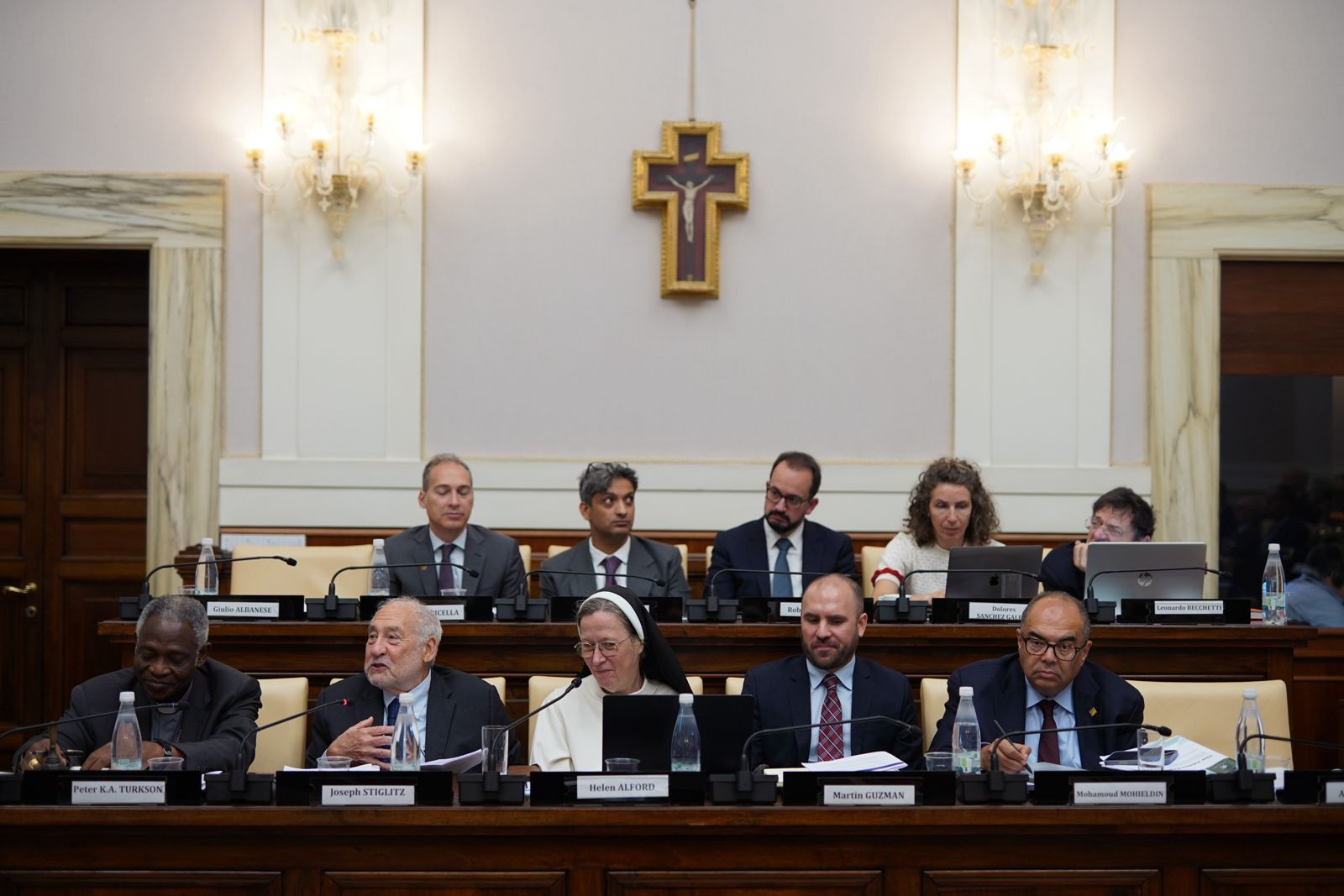
The Jubilee Report: A Blueprint for Tackling the Debt and Development Crises and Creating the Financial Foundations for a Sustainable People-Centered Global Economy
On June 20, 2025 the Pontifical Academy of Social Sciences (PASS) and Columbia University’s Initiative for Policy Dialogue (IPD) published a report by a commission of global experts calling for urgent action and systemic reforms to tackle the escalating debt and development crises.
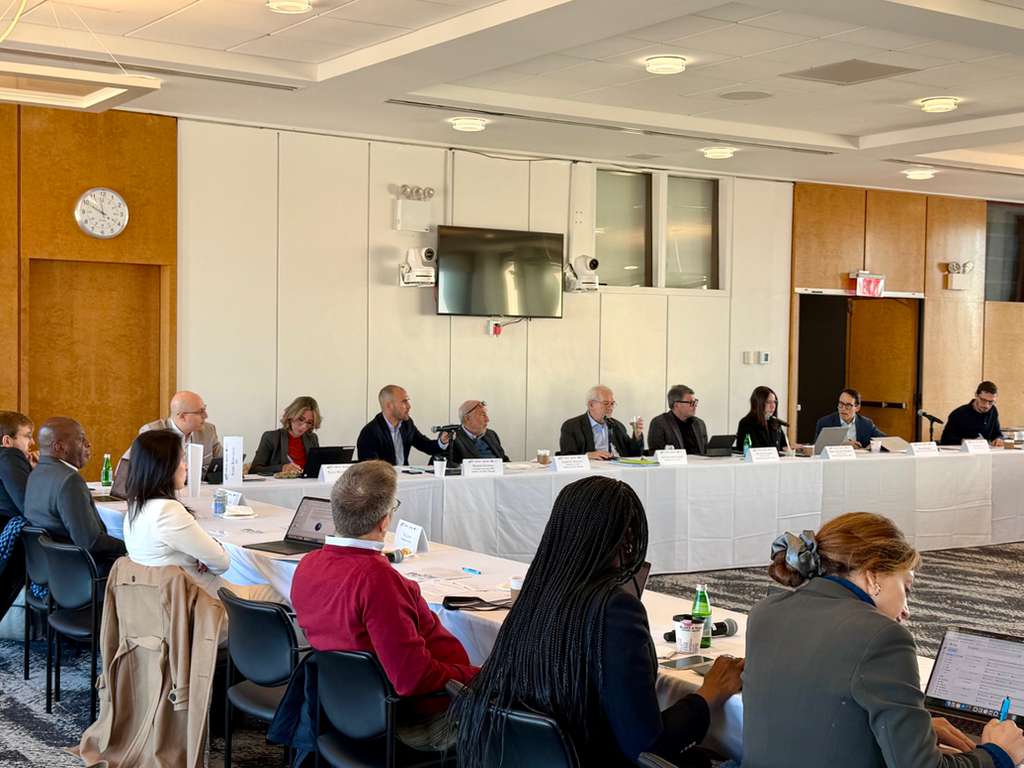
The Role of SDRs for Global Stability and Sustainable Economic Transformation
Overview The Initiative for Policy Dialogue (IPD) and the Institute of Global Politics (IGP) at Columbia University, the Center for Economic and Policy Research (CEPR) in Washington D.C., and the Global Development Policy Center at<a class="moretag" href="https://ipdcolumbia.org/"> Read more…</a>

Rating the rating agenices in Africa
A new African Union-backed service aims to challenge the 'big three'.
Explore Further >> about Rating the rating agenices in Africa

Tackling the Debt and Development Crises in Jubilee Year 2025
The conventional perspective that a debt crisis occurs only when a country defaults is deeply flawed. In reality, numerous nations are experiencing economic stagnation due to unsustainable debt burdens, even without formal default. According to UNCTAD, more than three billion people live in countries where debt servicing surpasses spending on essential sectors such as education and healthcare.
Explore Further >> about Tackling the Debt and Development Crises in Jubilee Year 2025

My Brush With Trump’s Thought Police
The email arrived in early February from the U.S. Embassy in Copenhagen, carrying a blunt message. It informed the organizers of a Danish lecture series — one I was soon scheduled to speak at — that the final portion of American funding would be released only after they signed a statement essentially saying they were in compliance with a U.S. executive order banning diversity, equity and inclusion.
Explore Further >> about My Brush With Trump’s Thought Police
Featured Publications

How to Update EU and US Copyright Regimes in the Age of AI
01/12/2026
,
Working Paper
We expect the European Union (EU) and United States (US) to travel along very different paths particularly regarding the use of news and other copyrighted works in AI training and development. The two regions have different legal frameworks and traditions, with the US relying on an expansive definition of “fair use” that is not recognized in the rest of the world, while Europe offers data privacy protections that are not present in the US. Building on data provided by the European Union’s Media Pluralism Monitor, this paper discusses different ways of valuing news content, the state of current copyright negotiations between news publishers and prominent AI firms, and the consequences for media sustainability, media diversity and pluralism. We note too that there are multiple proposals for statutory levies on the AI firms that would be distributed to authors. Which, if any, will be adopted is not clear.
View the Publication >> about How to Update EU and US Copyright Regimes in the Age of AI
 Tomohiro Hirano
Tomohiro Hirano
Henry George, land speculation, and economic growth and transformation
11/11/2025
,
Journal Articles
There has long been a concern that speculation on land (or other non-produced assets) may adversely affect economic performance by diverting scarce savings away from productive investment. The central objective of this paper is to show in the simplest possible model (i) how land speculation resulting from land market reform affects long-term productivity and economic growth rates, and (ii) how government policies and institutional arrangements can mitigate the adverse effects of land speculation and increase growth and overall welfare. We analyse the effects of land taxation in a way that goes beyond the suggestion by Henry George (1879) who argued that the fairest and most efficient tax was a tax on land. Our findings differ from the widely accepted views that looser financial and monetary policies should be good for growth. Instead we argue that, without financial regulations that curb the adverse effects of land speculation, such policies can end up encouraging land speculation financed by borrowing, rather than stimulating productive investment. We conclude that financial liberalization and lower interest rates can be harmful to the long-term economic growth and welfare.
View the Publication >> about Henry George, land speculation, and economic growth and transformation
 Tomohiro Hirano
Tomohiro Hirano
Overlapping generations models, multiplicity of steady states and momentary equilibria, and economic fluctuations
11/10/2025
,
Journal Articles
This paper examines the simplest OLG models with capital accumulation, demonstrating three results that stand in marked contrast to those of the standard model: first, the possibility of multiple steady states; second, the possibility of multiple momentary equilibria under rational expectations; third, one of the implications of multiple momentary equilibria is that dynamics may be marked by complex fluctuations (lacking even periodicity), but still within well-defined bounds. We provide quite general conditions (with general utility and production functions) under which, in the simplest of OLG models, there can be multiple steady states, multiple momentary equilibria, and complex dynamics.
View the Publication >> about Overlapping generations models, multiplicity of steady states and momentary equilibria, and economic fluctuations

Equity Prices, Market Power, and Optimal Corporate Tax Policy
03/04/2025
,
Working Paper
We study the optimal design of corporate tax policy in a textbook life-cycle model featuring two key deviations: (i) firms are imperfectly competitive and (ii) households save by purchasing equity shares in a stock market.
View the Publication >> about Equity Prices, Market Power, and Optimal Corporate Tax Policy

Addressing the debt and development crises in countries from the South in the year of the Jubilee
12/10/2024
,
Policy Brief
A group of academic experts, practitioners, finance ministers, policymakers, authorities from international financial institutions, religious leaders, and experts from civil society organizations met at the Pontifical Academy of Social Sciences (PASS) in the Vatican City on June 5, 2024, to discuss the current debt situation, especially in the Southern Hemisphere.
View the Publication >> about Addressing the debt and development crises in countries from the South in the year of the Jubilee
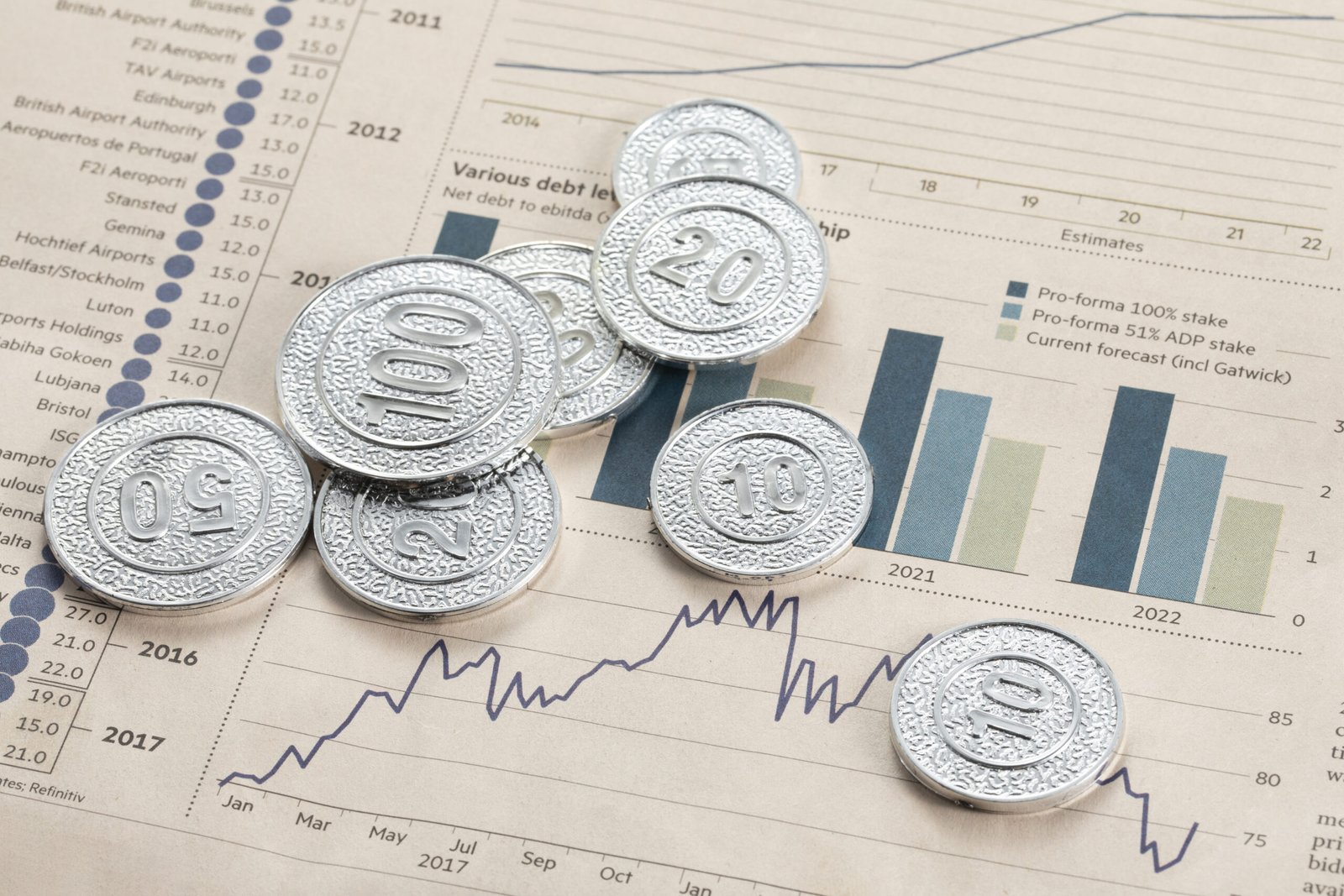
Growth and Fluctuations: An Overview
12/01/2024
,
Working Paper
Capitalism since its inception has been marked by large fluctuations. The resulting episodic unemployment has been very costly. This paper provides an overview of alternative theories
View the Publication >> about Growth and Fluctuations: An Overview

Reforming the IMF Surcharge Rate Policy to Avoid Procyclical Lending
09/12/2024
,
Policy Brief
The International Monetary Fund (IMF) levies ‘surcharges’ or extra fees on member countries that either draw “substantial” amounts of IMF credit to mitigate balance of payments constraints, or that maintain their credit exposure with the institution for sufficiently long periods of time.
View the Publication >> about Reforming the IMF Surcharge Rate Policy to Avoid Procyclical Lending
Update Hub
Event
Webinar — The Trump Economic Agenda: A One-Year Assessment
January 29, 2026
Event
The Role of SDRs for Global Stability and Sustainable Economic Transformation
December 5, 2025
Event
New Thinking in Industrial Policy: Perspectives from Developed and Developing Countries
November 6, 2025
Event
November 4, 2025
Event
25 Years of IPD: The End of Neoliberalism and The Transition Towards a Green and Digital Economy
September 12, 2025
Event
Tackling the Debt and Development Crises in Jubilee Year 2025
July 3, 2025
Event
July 1, 2025
Event
June 25, 2025
Event
May 2, 2025
Newsletter
Newsletter: October 2025Newsletter
Newsletter: September 2025Newsletter
Newsletter: August 2025Newsletter
Newsletter: June & July 2025 – Jubilee Report EditionNewsletter
Newsletter: May 2025Newsletter
Newsletter: April 2025Newsletter
Newsletter: March 2025Newsletter
Newsletter: February 2025Newsletter
Newsletter: January 2025
Journal of Globalization and Development
Journal of Globalization and Development
Volume 14 Issue 2 – Special Issue: Gendered Effects of Globalization and Development
Journal of Globalization and Development
Journal of Globalization and Development
Journal of Globalization and Development
Journal of Globalization and Development
Journal of Globalization and Development
Journal of Globalization and Development
Journal of Globalization and Development
Topics
IPD broadens dialogue on critical issues in developmental policy.
Diverse stakeholders with a legitimate interest in policy outcomes often lack access to the process, information, and language necessary to participate effectively. IPD emphasizes diverse participation to enable civic involvement in economic policymaking.
 Joseph Stiglitz
Joseph Stiglitz Anya Schiffrin
Anya Schiffrin Martín Guzmán
Martín Guzmán Kevin Gallagher
Kevin Gallagher Marilou Uy
Marilou Uy


